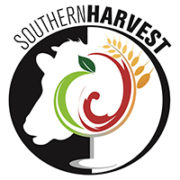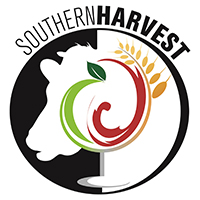ACT Permaculture Festival
Celebrating 40 years of permaculture in 2018
Connectivity is the theme of the ACT Permaculture Festival to be held on Sunday 15 April 2018 at Canberra City Farm. From 10am to 4pm!
The Festival is an opportunity to connect with community associations, local enterprises and small businesses with social goals and makers or individuals whose work is related to the practice of permaculture.
The festival celebrates the joy and benefits of local food. There will be a variety of produce and information stalls, workshops, demonstrations, food, music and kids activities.
To have your own stall, present your product, sell a book or more, please fill the application form
Find out how easy it is to bring sustainable living and permaculture principles into your life.
It is a free event in a relaxed family-friendly environment.
Our war on waste continues so bring your reusable coffee cup, water bottles and shopping bags for use.
There are lots of activities planned across the day. We are busy organising the program, so stay tuned.
What’s on:
- Keynote speakers including leading permaculturalists and celebrity gardeners
- Talks and demonstrations will focus on gardening, cooking, energy-efficiency and traditional arts
- Lots of local food and market stalls for you to come and taste, buy produce and meet farmers from around the region
- Self-guided tours around Canberra City Farm’s demonstration gardens and sustainable housing display
- Entertainment will include a mix of food growing, live music, health and well being, landcare and traditional arts
- Children’s activities
- Community groups will share knowledge about how you can continue your sustainable living journey, including upcoming courses, talks and demonstrations
ABC Gardening’s Costa will be joining us for the day!
David Holmgren is launching his latest book RetroSuburbia and will be available for book signings,
Formidable Vegetable Sound Garden playing music to groove along with
Join Canberra City Farm for one of their 15 min tours at the ACT Permaculture Festival. Tours at 10.15, 11.15, 11.45, 12.15, 1.15 and 2.15. Tours will cover wicking beds, demonstration gardens, vineyard, community garden plots, composting and worm farming.
Talks
Bio intensive poly cultures (Bronwyn Richards and Helen Lynch, Wynlen House Slow Food Farm wynlenhouse@bigpond.com) – 55 mins
Small land holders, homesteaders and backyard vegetable growers will benefit from an organic approach to growing produce that gives the highest yield for the smallest amount of land and most importantly, that increases biodiversity and soil fertility at the same time.
In this system of growing the terms intensive and polyculture have two distinct meanings. The “intensive” means growing larger numbers of a species/variety of plant in the same area – using smaller spacings than is usual or average for a particular vegetable. Polyculture, in this context, means planting many different vegetables in the same space. There are a number of variables that have a critical impact on the success of such as system including, to name but a few, soil nutrition and soil amendments, vegetable selection for compatibility and physical characteristic during the plant’s life cycle.
This lecture outlines this agricultural system and introduces & discusses the variables that make it a success.
Poultry nutrition (Bronwyn Richards and Helen Lynch, Wynlen House Slow Food Farm wynlenhouse@bigpond.com) – 55 mins
Keepers of poultry who are small land holders, homesteaders or backyard producers generally run chickens, geese, ducks and turkey for the table or for eggs. However, the fact that these are the most commonly kept poultry doesn’t mean that those who raise and keep them fully appreciate their nutritional needs or know how to meet those needs cheaply and efficiently using feeds that are not heavily processed or adulterated in the manufacturing process.
This lecture takes a close look at the nutritional needs of these birds and how they can be met using the techniques and ingredients that predate the factory farms and highly processed “take away” commercial poultry feeds. Take a step back to the time of mixing feeds from easily available base ingredients – what used to be a common activity for anyone with poultry (regardless of numbers kept), before industrial animal factory farms became common in the last part of the 20th century. Learn to produce the absolute best of meat and eggs without pesticides or herbicides and maintain a robust healthy flock.
Social permaculture – making connections (Robin Clayfield, Earthcare Education www.dynamicgroups.com.au) – 55 mins
Join Robin in weaving the permaculture principles card game into an interactive activity with lots of energy.
Permaculture and landscape design – an introduction (Chris Curtis, Fresh Landscape design www.freshlandscape.com.au)
In this short talk, Chris will describe ways of applying permaculture principles to residential landscape design. It will include a brief overview ofpermaculture, its ethics and principles, discuss why design is necessary, and provide examples of applying permaculture thinking to the various stages of landscape design.
Chris is living his dream in an owner-built, off-grid house on 10ha near Bungendore, surrounded by fruit trees, vegies, ducks, chooks, llamas, alpacas, Babydoll Southdown sheep and grasshoppers. He works in a home-based landscape architecture practice which also allows him to explore his interests in GIS, CAD and drones.
After many years working in IT in the city, Chris took six months off work and started an exciting journey involving cooking in a local cafe, running a catering business, the local food movement, landscape design, market gardening and the Bungendore Farmers Market. He is in the final year of study for a Bachelor of Horticulture degree.
Cooking with local(ish) native foods (Fiona Porteous, Bent Shed Produce www.bentshedproduce.com.au) – 25 mins
Fiona will demostrate cooking with Warrigal Greens making a simple and tasty gluten-free, vegetable frittata. Once properly prepared Warrigal Greens can be used in place of spinach in many dishes.
Wool and chickens in permaculture and art (Tabitha Bilaniwskyj-Zairns, Tabandy Farm www.tabandyfarm.com)
Tabitha will explain how she brings together her experience and expertise of horticulture, animal management, chicken handling skills, wool production and textile artistry with permaculture principles. She’ll detail how you can use animals on a farm without eating them. All the while you will play with wool in soapy water to create an individual sculptural felt piece.
You may recognise Tabitha and Tabandy Farm from the TV series River Cottage Australia, where she mentored Paul West with his chicken showing and provided camel manure for the garden. (55 mins)
Making your own skincare (Stephanie Teagle, The Purity Store www.facebook.com/The-Purity-Store-1205628406176883/ ) 25 mins
Don’t pay big bucks for lotions and potions for your skin. Join Stephanie to learn how to make your own skincare products using common kitchen ingredients. Stephanie will demonstrate making skin scrubs, masks and hair treatments that you can go home and make yourself. She will also have a range of other products to show what else you can do. There’s health and sustainability benefits in making your own and/or buying natural locally sourced skincare ingredients.
Explore how art makes a difference (April Sampson-Kelly, Mother Goose Permaculture – www.mothergoosepermaculture.blogspot.com.au) – 25 mins
When we change the way we see the world, we also change the way the world sees us. The most useful tool for environmental mindfulness is observation. Art can stop us in our tracks. Lets explore how art makes a difference. Evaluate your ‘ecolution’. Build new direction. We will work on different practical activities to formulate ideas on how art works to build awareness, celebration of nature, and supportive, connected communities. This workshop aims to enrich the communication of complex environmental issues to achieve effective change. The unique beauty of permaculture is it’s ability to use design as a tool for efficiency. This clever use of design deserves better understood. Art can help to sell complex ideas.
STEAM Ahead – Use the Arts to build your dreams of a better future.
Challenge your thinking on using industrial hemp (Karen Dahl, Australian Industrial Hemp Alliance www.hempalliance.org.au) 25 mins
Industrial hemp is a food, fibre, hurd, medicine and fuel. Crops can be grown almost anywhere in Australia (best with irrigation) and can have 2-3 good crops per year. Industrial hemp doesn’t have high THC and can’t be used to get high. There are so many uses of hemp including as a great carbon sequester plant. Countries like China lead the world in industrial hemp production. Eighty years after hemp cultivation was banned in Australia the industry is enjoying a second coming. Come and find out more.
Re-styling the clothes in your wardrobe (Nina Gabor, Style by Nina www.facebook.com/StyleByNinaGbor) 25 mins
Eco Stylist, Nina Gbor is a personal stylist who advocates for sustainability and ethical clothing production in the fashion industry. Nina teaches simple techniques for creating your perfect sustainable wardrobe based on the philosophy, buy less, choose well and make it last. The focus of the Sustainable Clothing & Re-Styling Talk/Workshop is to discuss why sustainable clothing is so important for our personal lives, the environment and the lives of garment workers. At the talk, you will also learn how to reuse the same pieces in your wardrobe for different types of occasions and for multiple seasons throughout the year. The result? Less fashion waste, consistently look amazing and spend less on clothes. At the talk, you will get easy ideas like:
- 2-minute outfit transitions using 1 garment to create different looks like casual to corporate to glamour.
- using the same pieces in all 4 seasons
- how to identify your best colours.
How to make your own beeswax wraps (Zoe Reynolds) 25 mins
Beeswax wrap is a fantastic alternative to disposable plastic food wrap. Single-use plastics are not only an unnecessary waste of materials, but also have a massive impact when they go into the environment as waste. Many of us are trying to reduce the amount of waste we produce, and beeswax wraps are one very simple step in the right direction! Beeswax wrap is re-usable, easy to make, is made using easily-sourced natural materials, and can be used for everything that you would usually use plastic food wrap for.
In this 25-minute session, Zoe will demonstrate how to make your own beeswax wrap at home. We’ll chat about what you can use it for, how to use it, and where to source the materials. Come along and you may get a chance to make your own beeswax wrap to take home with you!
The Canberra forest (David Watson, Millpost Farm www.millpostmerino.com) 25 mins
Canberra has a wonderful range of trees across its streets and parks. Let David help you in identifying which ones are useful for permaculture, such as cork oak, stone pine, honey locust and black walnut. Explore how Canberra’s street trees had a role in the early development of permaculture in Canberra. David will draw on the historical work of foresters Thomas Weston and Lindsay Pryor as well as the work of Marc Julienne in the late 1970s and 80s. An appraisal of the National Arboretum is included in the discussion. Key reference books are Trees in Canberra and Street trees in Canberra.
How to make a wicking bed (Cally Brennan, Canberra Permaculture Design www.canberrapermaculturedesign.com.au) – 55 mins
Have you ever wondered how you can make your vegetables grow like crazy without spending the whole summer watering? Or maybe you would like to take a summer holiday without your precious plants keeling over the moment your back is turned!?
Wicking beds are a great way to conserve water while producing great crops. And they don’t have to cost a fortune either. Join Canberra’s own ‘Wicking Witch of the West’ – Cally Brennan, who will show you how easy it is to make your own wicking garden bed or plant pot. Cally has spent the last 8 years making all sorts of wicking beds, from the very large to the very small – learn her tips on how you can make your garden thrive and survive, even in the very hottest weather!


